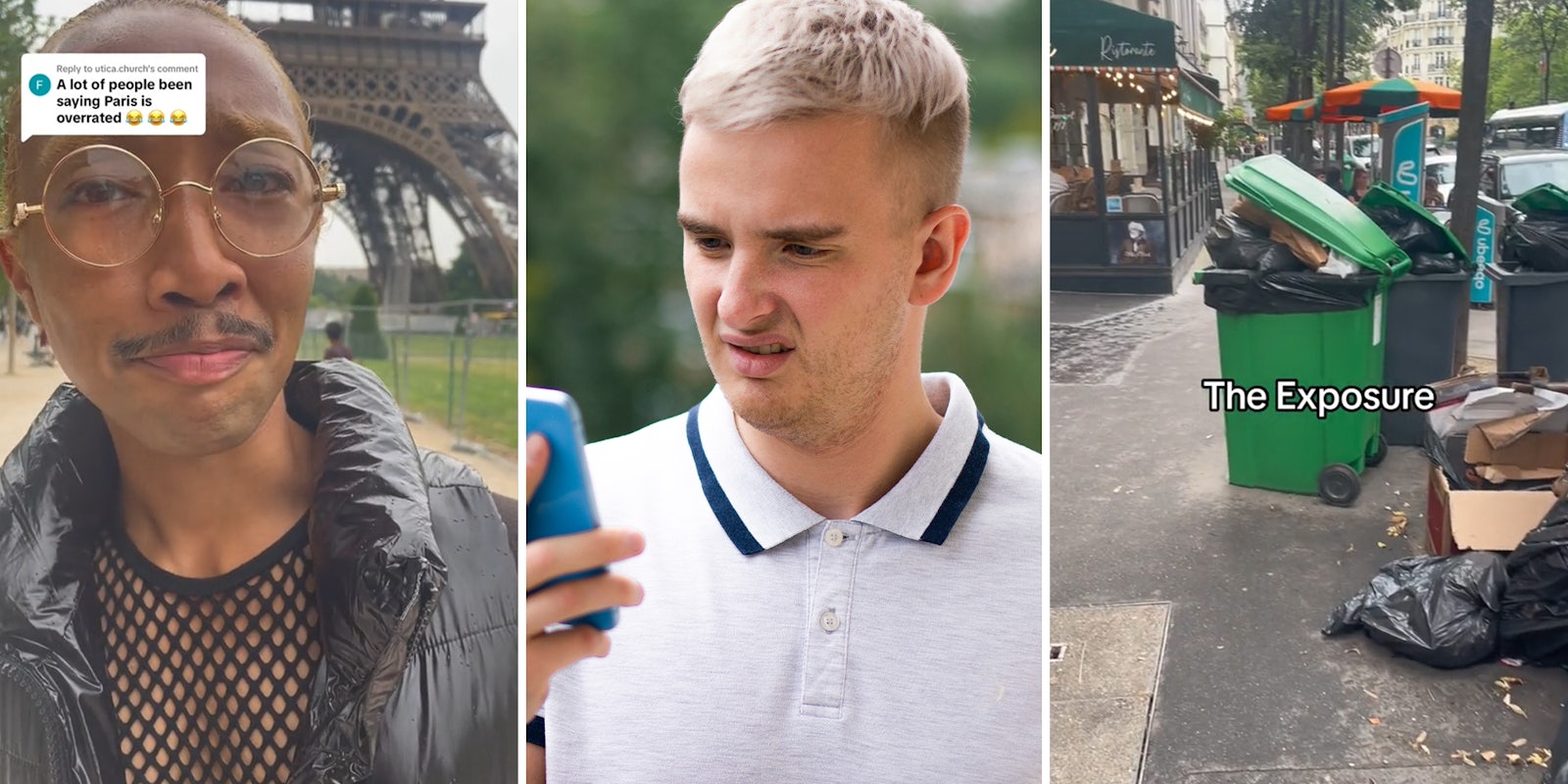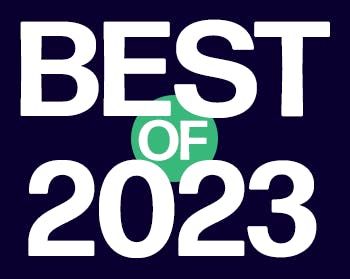This year, American TikTokers flooding Europe found they had been “delulu” in expecting a dream vacation.
And, more than any other city, Paris crushed their idyllic hopes.
The romantic capital of the world struck clueless TikTokers with two waves of social unrest, piles of uncollected trash, and a bedbug scare.
While more socially aware travelers embraced the Parisian vibe, recording themselves sipping wine in cafes as trash bins were set on fire, others felt offended and betrayed by the stark reality.
It was in a way the TikTok version of the Paris syndrome, the nervous breakdown that is said to happen to Japanese tourists once they realized the City of Love wasn’t as romantic as they expected.
And as an entire city could not issue a refund, TikTokers could not keep the disappointment to themselves.
As the influence of TikTok on travel trends increases, it also bring influencers unwilling to embrace a city as it is. These TikTokers learned this year that Paris was no Paradise. And they had thrown away “all the life savings” for the lesson, as American TikToker @malfoy_drayco put it.
He was by far the most viral and harshest accuser of Paris, calling the city “dirty” and “ghetto-looking” in a series of videos posted between June and July that got over 40 million views and 5.9 million likes.
“Paris looks grimy as hell … [and] post-apocalyptic … everywhere you go it was graffiti. The buildings weren’t inviting, or welcoming. It was actually a horror site to see. It was shocking to me,” he said in the video.
@malfoy_drayco Replying to @utica.church Paris was definitely giving Ratatouille bc thats all i saw walking thru the streets #fyp #foryoupage #xyzbca #paris #paristravel #paristravelguide #paristravelgoals #paristraveladvice #paristraveltips #paristips #paristrip #parisvibes #parisvlog #paristiktok #parisianlife #parisianvibes #parisguide #parislife #parislifestyle #parisliving #visitparis #parismood #parisfrance #eiffeltower #eiffel #france #francetiktok #parisdayinthelife ♬ original sound – Benaiah Adesoji
@malfoy_drayco was not the only one to be horrifically disappointed. The “Paris stinks” trend on TikTok displays vitriol videos advising against travel in the French capital, as you would do with a war zone.
TikTokers failed to understand Paris isn’t immune to the same strife many big cities face and was undergoing major turmoil this year.
Other TikTok leit-motives for not visiting included that people on public transport smell and that people in the service industry are impolite.
@ms.nextlevel 3 reasons why you shouldn’t visit Paris #paris #parisfrance #paristraveltips #paristour #paris4k #paristravel #environment #paristravelguide #visitparis #top10paris #thingstodoinparis #paris2023 ♬ Every Summertime – NIKI
The entire controversy may seem fun as European viewers diabolically relished in the videos.
But for Joris Lechêne, a Franco-British influencer and anti-racism and bias consultant, the conversation started by @malfoy_drayco and many TikTokers is more malicious than it seems.
Behind the expectations of a clean Paris, he believes there is a racist and classist ideal of whiteness, of a place devoid of social and racial conflict, as the city is traditionally portrayed in mass culture.
TikTokers did not like Paris because it is “non-white,” Lechêne said to the Daily Dot.
Indeed, the city’s struggles stem from a very rough period of both economic and ethnic conflict.
Starting in January, the French capital experienced relentless unrest as part of the national protests against pension reform, including a strike of trash collectors that mesmerized visiting TikTokers.
At the end of June, the police killing of 17-year-old Nahel Merzouk, a French boy of Moroccan and Algerian descent, prompted days of violent protests, roiling the city.
But though the Paris unrest was upfront in the global news, TikTokers seemed ignorant of what was happening.
According to Lechêne’s, they instead unconsciously based their complaints on an old racist myth that portrays advanced, “European” societies both as white and clean. And consequently accused the Parisians of being “dirty people” for not meeting that expectation.
TkTokers even blamed the recent infestation of bedbugs on dirtiness, though experts linked it to the increase in international tourism, as the parasites are known to travel with passengers and in luggage.
For Lechêne, the delusions of TikTokers are not entirely their fault.
“Americans are biased by a certain idea of the European city, for sure, but the Europeans are the sellers of that idea,” he said to the Daily Dot.
There is indeed a tendency to romanticize Paris and other European destinations that more woke cities like London, Brussels, and Berlin have rejected, embracing their ethnically mixed—and at times conflicting—identities.
However, many other European countries are still promoting tourism through the glorification of stereotypical sets of traditions and narratives, tapping into the nostalgia for a time in which the population and the culture were exclusively white.
That contradicts the reality of cities like Paris. According to Le Monde, immigrants in Paris make up between 20-32% of the capital and suburbs population.
It does not help that the xenophobic right is on the rise in Europe. In France, the nationalist candidate Marie Le Pen even got to the second turnout, eventually losing against President Emmanuel Macron. This powerful right has kept the narrative on cultural identities stuck in the last century.
For Lechêne, the flittering sentiment of nostalgia somehow resonated in the American TikTok through an extreme idealization of European destinations, Paris on top.
“The same discourse on TikTok about Paris not being anymore what once was, of it being dirty, is shared by the French far-right and French racist people,” he noted.
But not all TravelTok controversies were about racial issues. Common complaints of American TikTokers included ranting about the sweltering climate—which set a new record for Southern European heatwaves—or lack of other comforts.
A TikToker from Denver, Lexi Jordan, complained in a video of over 1.5 million views that the Amalfi Coast in Italy was a fraud because it was hard to reach to the point of being “literal manual labor.”
“Every single influencer and TikTokers who put the Amalfi Coast on my For You page over the last two months deserves jail time,” she said.
@millenniallex honestly my main takeaway is if youre gonna come here dont make the same mistake i did – go for at least a week and definitely not TWO DAYS 😭 #amalficoast #eurosummer #dying ♬ original sound – Lexi Jordan
Italian users roasted her for what they dubbed “wanting a subway in Amalfi,” a village of 4,000 souls built on a cliff diving into the Mediterranean Sea.
In June, New Jersey TikToker @bellasweettt kicked off a viral backlash for saying Europeans “do not believe in regular water consumption.” The reason? She could not find water outside her hotel room. The video totaled 4.7 million views.
@bellasweettt Im not even joking
♬ Yeahhhh slurpyyyy – AAA
Other TikTokers followed through on the topic of water. “Scams” included being charged for bottles in restaurants and refills not being the norm.
EU viewers pointed out that American travelers had indeed ended up in tourist traps, but ignorance played a big part. TikTokers were simply behaving like terrible travelers.
Though the recommended intake of daily water is a bit higher in the U.S. than in Europe, tap water is safe to drink in most EU countries and drinking fountains are more common than in the U.S.
Their Eurosummer unpreparedness gave way to a new genre of parodies under the label of “American influencers visiting Europe.”
Recurring tropes include “explaining Europe” after a few days vacation, getting scammed, and falling in love with “the slow life” while locals are instead tolling around or have left because of mass tourism.
But the TikTokers complaints aren’t persuading Paris. Tourism councilor Frédéric Hocquard told the Daily Dot that the city council is committed to promoting the authentic, multi-ethnicity of the city.
If protests are the issue for TikTokers, they should better learn to embrace them as part of the local experience. Some tourists already do that, asking to see them “as you would do with a parade,” Hocquard said, though it is usually safer to stay away.
In July, American tourist and TikToker @thebroketourist was beaten by the French police in Paris during the riots.
@thebroketourist Of course I get beat and all I was doing was filming 😂😂 #france #paris #riot #protest #frenchriots2023 #parisriots #policebrutalitymuststop #travel #youtube #vlog #tourist ♬ original sound – The Broke Tourist
“But if you do not want that [meaning, dealing with protests in Paris, or with Paris as a whole], you can go to calmer places,” he concluded.



